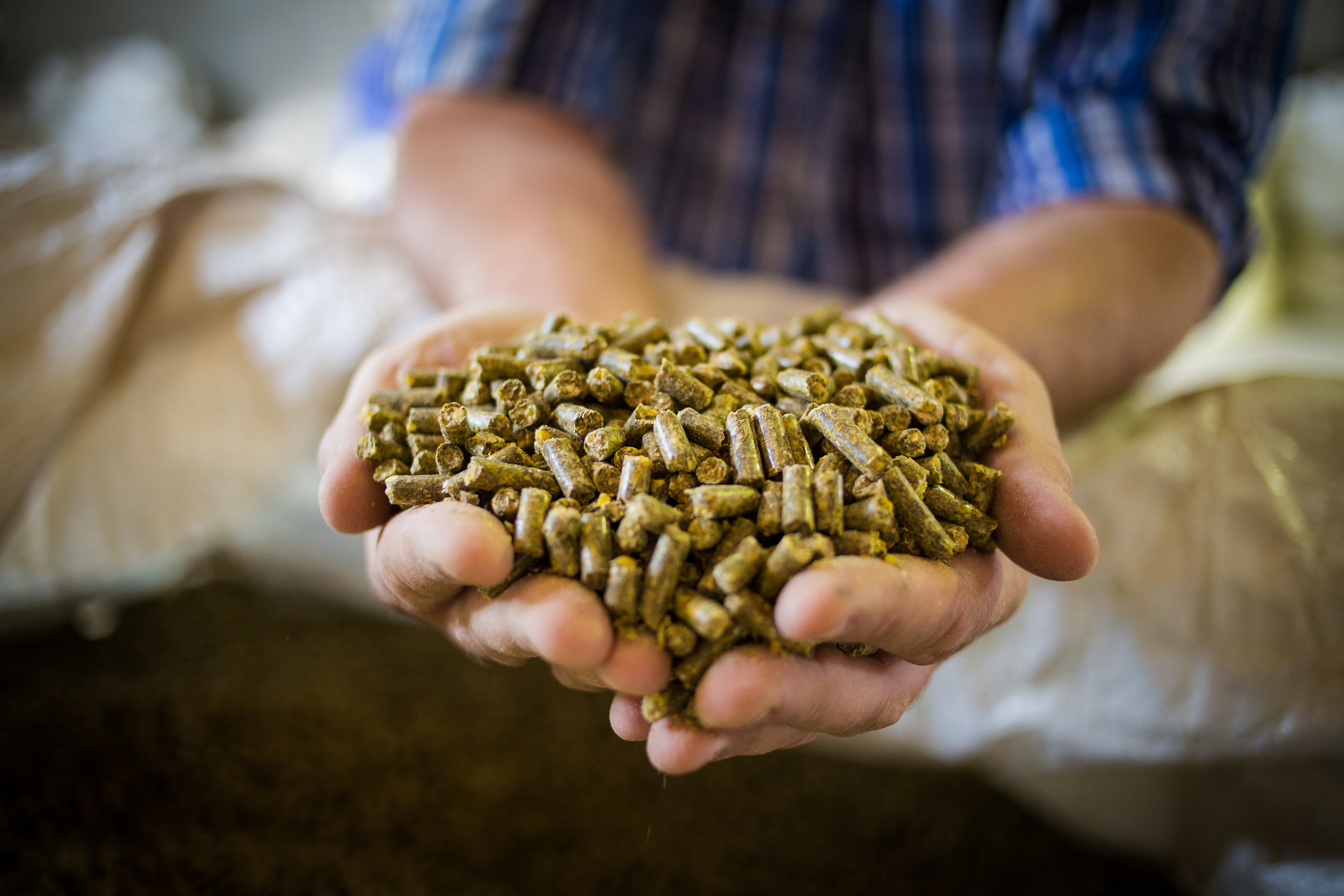
RESPONSES IN MILK PERFORMANCE OF DAIRY COWS SUPPLEMENTED WITH PROTECTED DL-METHIONINE (BYMET®) IN PELLETED FEED
There are different ways to supplement protected methionine to dairy cows. One option is to mix the amino acid into the total mixed ration (TMR), but there are other options such as including methionine in the granulated feed for the milking robot or to add in the TMR. It is believed that subjecting protected DL-methionine to high temperatures and pressures could decrease its effectiveness, however, BYMET® is specially designed to resist pelleting process.
A farm trial was carried out with the aim of evaluate the effect of the pelleting process on the product (BYMET®) effectiveness, and assess the responses of the supplementation with protected DL-methionine in pelleted feed on milk performance. The protected DL-methionine was mixed with other raw materials at a rate of 4.5% and was subjected to a pelleting process at 75º C. Then the feed was bagged and stored under normal conditions until it was used in the “in vivo” trial. One hundred and two Holstein cows were enrolled in the trial, and were randomly assigned into two groups and exposed for 8 weeks to 2 treatments. Treatments consisted in the supplementation with 40 g/cow/day of BYMET® (39% of DL-Methionine) in the TMR (Crude protein (CP) 15.6%, Neutral Detergent Fiber (NDF) 28%, Crude fat (CF) 3.1%) in the methionine supplemented (MET) group. The control (CTL) group did not receive any amino acid supplementation in the TMR (CP 16.7%, NDF 28%, CF 3.1%). MET cows received lower amount of CP than CTL in order to reduce TMR cost.
Milk yield of cows in the MET group was higher during the first 7 weeks of the trial. On average milk yield of MET cows was 28.8 kg/cow/d, in the case of CTL ones, the milk yield was 27.8 kg/cow/d. Milk composition (fat, protein and lactose) was not affected by treatment (P > 0.3). Dry matter intake was different among treatments, it was 24.5 kg of DMI/cow/d in the MET group, and 25.2 kg DMI/cow/d in the CTL one. Feed efficiency was higher in MET group during the first 7 weeks, and was similar in both groups in the 8th week. The protein efficiency, is the ratio between the N in the milk and the N ingested, and it was significantly (P <0.001) higher in the MET group, than in CTL one.
With these results, it was concluded that the pellet process did not affect the effectiveness of the BYMET®. This means that the product could be used in different ways without losing effectiveness. The supplementation with protected DL-methionine in pelleted feed improved milk yield. The feed efficiency and protein efficiency were improved with BYMET® supplementation in pelleted feed.

